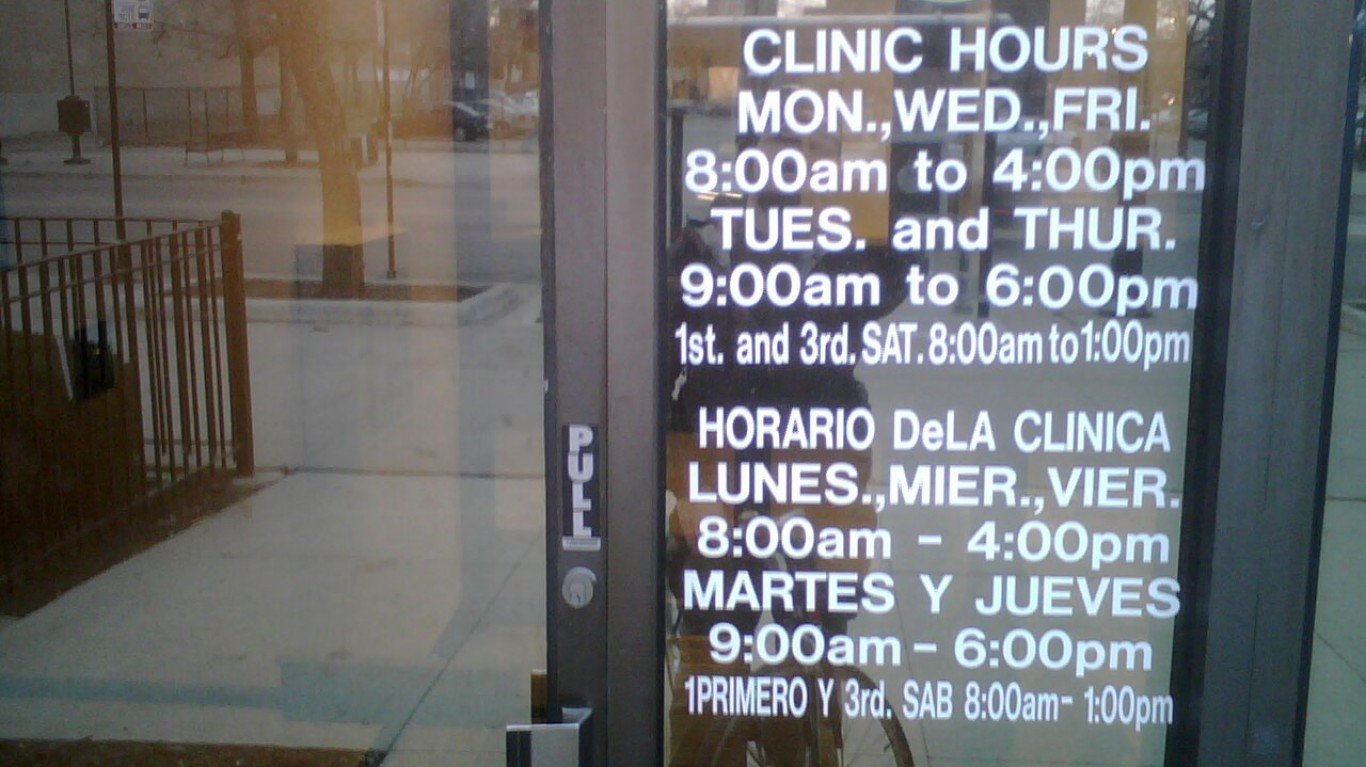Annual health checkups are important to people’s long-term well-being and their ability to avert the onset of serious illness. Seeing a doctor as soon as symptoms show up is crucial to preventing a condition from getting worse. Yet, many Americans avoid doctors for various reasons.
According to a 2021 survey, about 20% of Americans haven’t seen a medical professional in five years. And, according to a 2018 report, 40% of Americans skip a recommended medical test or treatment. An online survey from 2020 reported similar results.
To identify 20 reasons people don’t go to the doctor, 24/7 Tempo reviewed the study “Why do People Avoid Medical Care? A Qualitative Study Using National Data,” published by the Society of General Internal Medicine.
There are three main categories of reasons people avoid medical care: fear of unfavorable evaluations, low perceived need for medical care, and high costs even for those with health insurance coverage. Perhaps it’s not surprising that healthcare and medical bills are the No. 1 reason people in America file for bankruptcy. (These are the 21 states where the most people don’t have health insurance.)
Over the years, people have had to pay more in the form of higher premiums, deductibles, and additional expenses. Between 2012 and 2017, average family premiums have increased 19% – slightly less than that 30% increase between 2007 and 2012, but an increase nevertheless.
Distrust, whether of doctors or of the healthcare system in general, and long wait times also played a big role in people’s decision to avoid making an appointment, according to the survey. The latter factor may be especially prevalent in the states with the longest ER waiting times in the U.S.

20. Cannot take or dislikes medication
One reason people avoid seeing doctors is disliking the prescribed medication or not being able to take it because of the possible side effects. Headache, nausea, dizziness, constipation…. These are commonly cited potential side effects to medications. Occasionally, however, severe side effects may occur and end up seriously disrupting a person’s life. More serious common side effects are blood clots, higher risk of stroke, muscle pain, and weight gain.
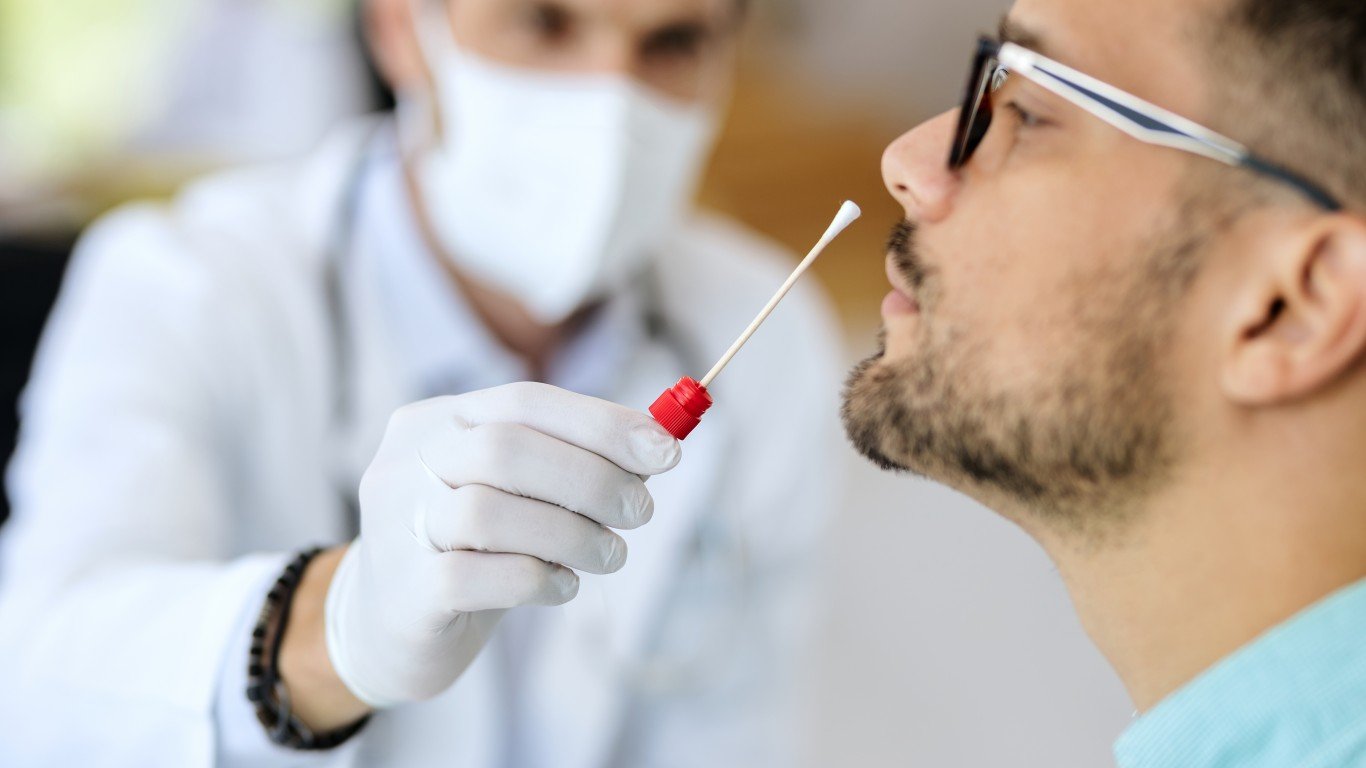
19. Believes doctor will do unnecessary tests or prescribe unnecessary medication
Some people taking the survey expressed concerns that doctors would prescribe unnecessary tests or medication, with several even saying “doctors care more about money than patients.” Unnecessary tests and outpatient surgeries have become the norm. Sometimes it’s at the patients’ request and other times at the doctors’. According to some estimates, a quarter of all money spent on healthcare – or about $765 billion – is spent on unnecessary tests and procedures.
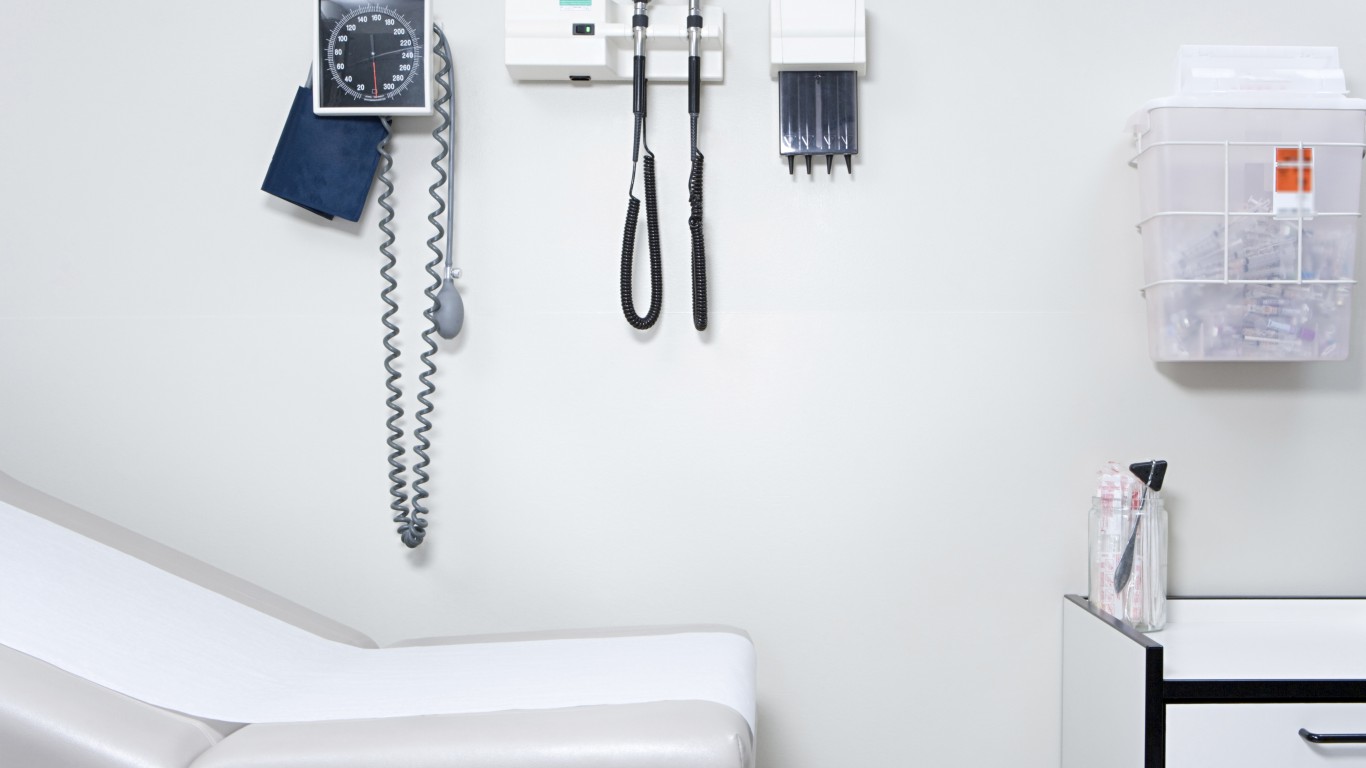
18. Does not have a doctor
A small number of survey participants reported not having a doctor as the reason they avoid seeking medical care. Some 26% of people in the U.S. don’t have a personal doctor or healthcare provider, according to a 2018 survey conducted by the Kaiser Family Foundation. Most of those without a doctor are people between 18 and 29 years of age. According to a separate report by report in JAMA Internal Medicine in 2019, the number of patients in the U.S. with primary care providers decreased by 2% between 2002 and 2015, which amounts to about 6.5 million people, or the equivalent of the population of Georgia.

17. Embarrassment
Some patients anticipate feeling embarrassed, which is what keeps them from seeking medical care. Reasons include embarrassment about weight, chronic health issues, and general feelings of discomfort when being seen by a doctor. Some people are embarrassed because they may have to disclose unhealthy behavior. According to one report, about 81% of patients are not truthful about their habits during doctors’ appointments because they don’t want to be judged.
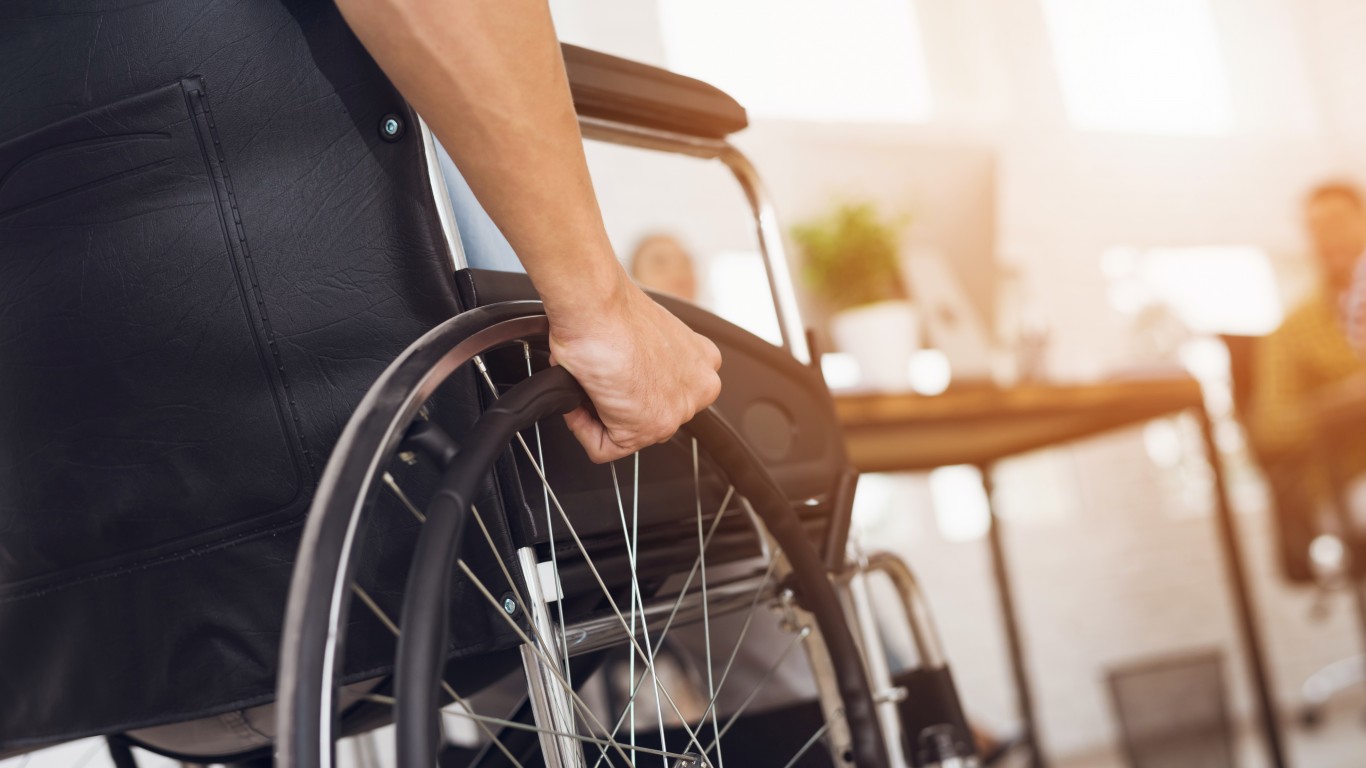
16. Transportation difficulties
Several survey participants reported that transportation to a doctor’s office was difficult to arrange or the distance was too far. Though this is hardly an issue in bigger cities where there may be a doctor’s office every few blocks, more rural parts of the country are struggling. According to a report from 2021, at least 80% of the U.S. lacked adequate healthcare infrastructure and a third of the population lives in a county where there are not enough primary care providers, hospitals, and low-cost health centers.

15. Dislikes or is avoiding medical recommendations
Some people avoid seeing the doctor because they think they are not going to like their medical recommendations or think that those recommendations will not help. These patients don’t want to change their behavior, which is often what doctors recommend. They resent the same old advice to lose weight and don’t want to hear criticism of their unhealthy behaviors such as drinking or smoking. There is also the fact that depending on the patient’s social and economic status, insurance coverage, and physical limitations, the doctor’s recommended treatment may be difficult to follow. Up to 30% of prescriptions for drugs to treat chronic health conditions are never filled, and about half are not taken as prescribed, according to the CDC.

14. Does not like doctors
Survey participants also reported a broad dislike of doctors, without elaborating further. There are several reasons that people may feel a dislike towards doctors. After all, they usually see them in times of vulnerability and are dependent on them to feel better. Being dependent on others breeds resentment. There is also a stigma associated with physicians and big pharma, as there have been numerous investigations over the years exposing doctors being paid by drug companies for promoting them.

13. Does not trust doctors
The survey identified factors such as low trust in doctors as one of the main reasons why people avoid seeing a medical professional. Some people feel a general mistrust of doctors. The trend is not new. In fact, over the past several decades, medical mistrust of healthcare providers has become a public health problem. Just about one in four Americans are confident in the healthcare system. A 2018 Johns Hopkins study suggested that about 250,000 people a year die from medical errors, making doctor’s mistakes the third leading cause of death in the country after heart disease and cancer.

14. Lack of health insurance
Almost 10% of Americans don’t have health insurance. Without health insurance, an in-person appointment with a primary care doctor can cost anywhere between $50 to $300, depending on location. The cost only goes up, often significantly, if more specialized tests or care are needed. For example, an MRI, or a magnetic resonance imaging, which is often used to diagnose various conditions, can cost anywhere from $400 to $12,000.
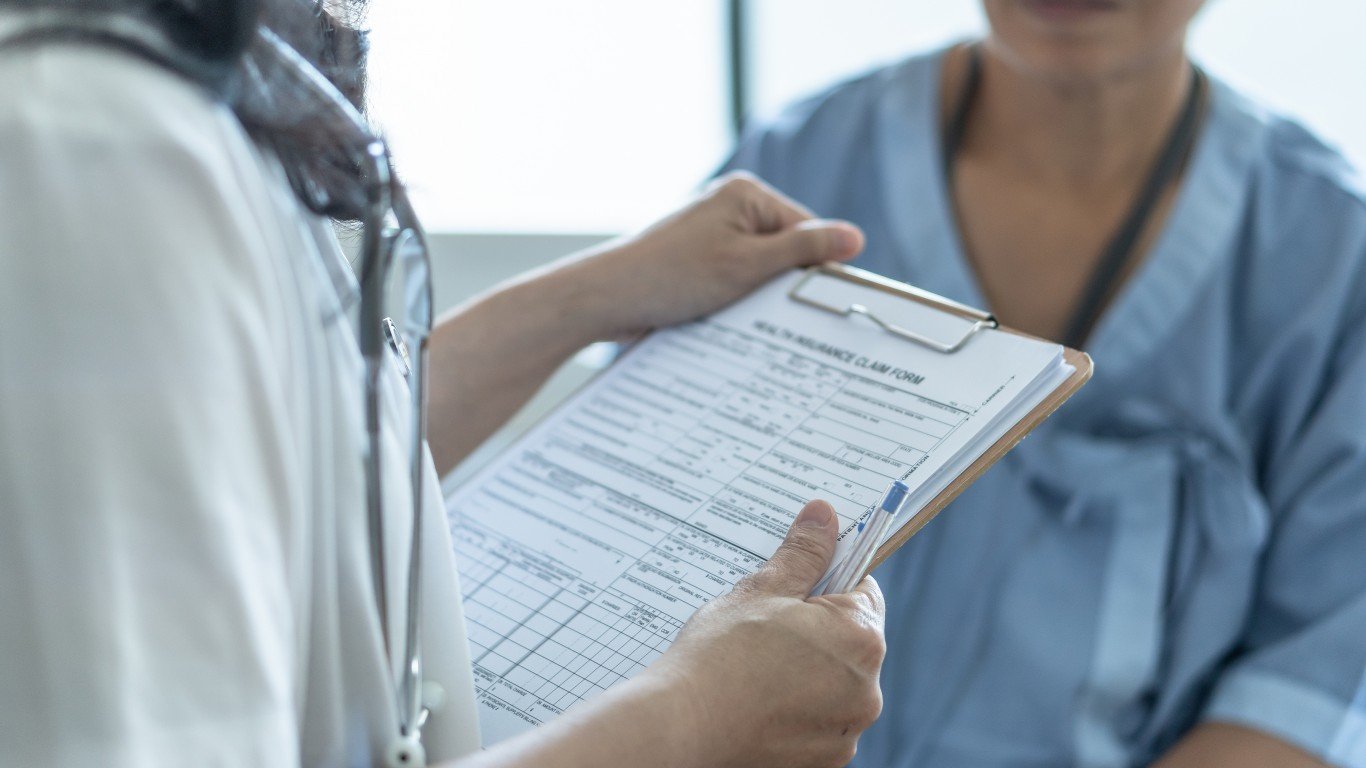
13. Inadequate health insurance
The Affordable Care Act made the lack of health insurance less of a barrier for seeking medical help, as the number of uninsured people in the U.S. dropped, but inadequate health insurance and high copays did not fall after the law took effect, and are also reasons for avoiding medical care, according to the survey. As of 2022, about 45% of working-age adults in the country are underinsured, meaning that while they have health insurance, the coverage is inadequate and the policyholder is left responsible for a large percentage of the total expense.

12. Fear of bad news
For some people, going to a medical appointment can be a source of great stress. In the study, some participants reported having the fear of receiving bad news, such as a medical diagnosis or a prognosis concerning an already diagnosed condition. Participants also reported being petrified of needles, afraid of pain, and reluctant to undergo certain procedures such as a prostate exam.

11. Communication issues
The most frequent interpersonal concerns involved communication, including perceptions that doctors do not follow up and that communication with them is difficult. Some respondents said they disliked how doctors talk to patients, and to some, doctors often come across as abrasive, arrogant, and rude. Some respondents said they don’t like the way doctors give advice by scolding them. There were also people who pointed out doctors not listening to patients as a reason not to go see them. Some respondents also had concerns about doctors not taking patients’ concerns seriously.

10. Copay is too high
Survey results show that high copays are also reasons for avoiding medical care. Having health insurance is not a guarantee that medical costs will be low. People are paying more money in the form of higher premiums, deductibles, and additional expenses. The average copay at a primary care doctor’s office is $25, and it’s $42 at a specialty care office, $162 for outpatient surgery, and $321 for hospital admission, according to a 2021 report by the Kaiser Family Foundation.

9. Dislikes going, unspecified
Survey participants reported an unspecified and broad dislike of doctors. There was a notable frequency of responses indicating dislike of both doctors as well as the healthcare system in general. If people feel that they only have a cold or their symptoms are not serious, they may have a preference for self-care or alternative care.

8. Hassle
There are some organizational factors that prevent people from seeing a doctor, including the hassle, as respondents call it, of making timely appointments or even making appointments at all. Appointments are often scheduled for weeks out, by which time the person may not even be sick anymore. Sometimes an appointment isn’t even available for months. Millennials, and younger patients in general, are moving away from making appointments and towards the fast convenience of urgent care clinics where walk-ins are welcome.
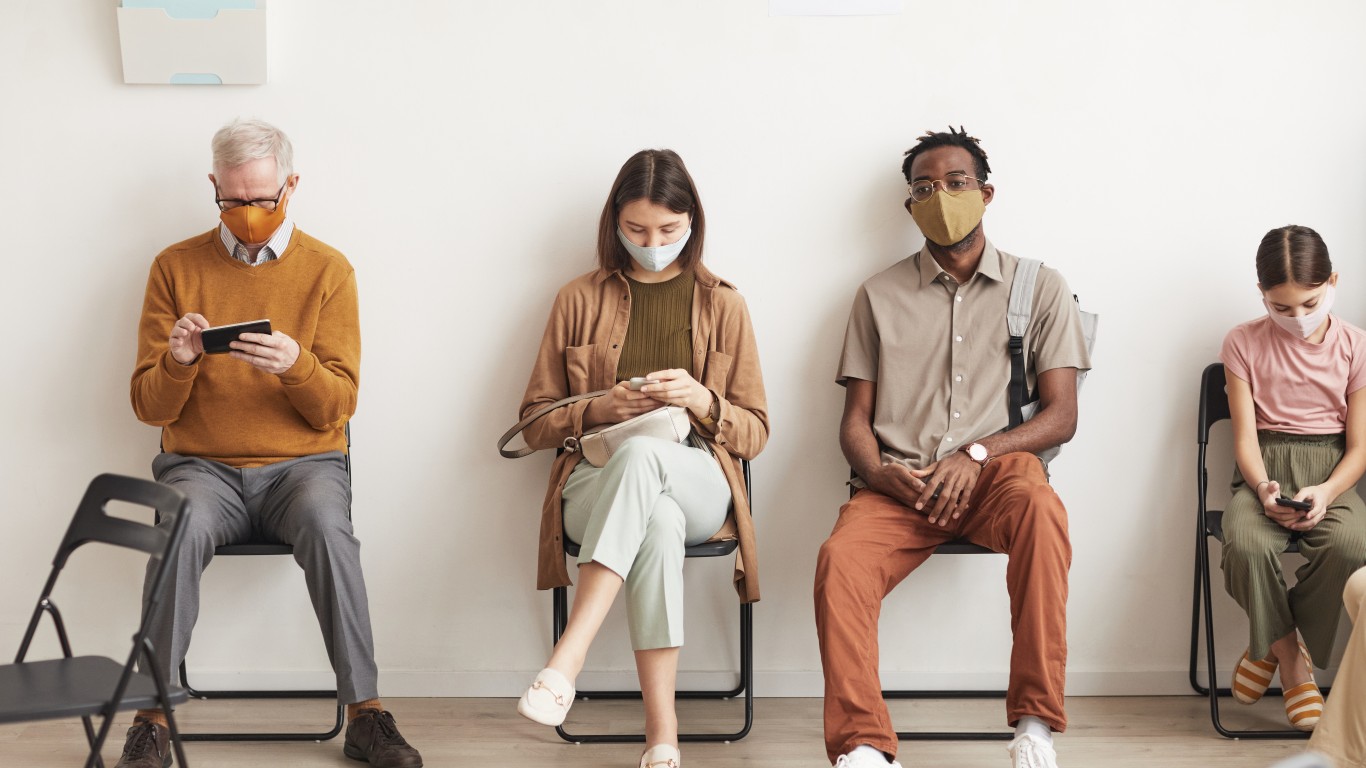
7. Long waiting times
Even with an appointment, patients often sit in waiting rooms until they can be seen. A 2018 study by Vitals found that, on average, patients wait for 18 minutes and 13 seconds to see a doctor. Almost a third of people leave even before seeing a doctor because of the long wait. The average wait time at an ER is two hours and at an urgent care facility is 15 minutes to an hour.
6. Inconvenient hours
Oftentimes going to the doctor means taking off work for a day. That’s why it’s perhaps not surprising that a common reason to avoid even making an appointment is inconvenient hours. As an alternative, urgent care clinics are often open seven days a week. These facilities have become a popular option also because a patient would normally pay a fraction of what he or she would at the ER.

5. Low confidence in doctors’ expertise
Low confidence in doctors’ expertise was the most frequent reason concerning the quality of medical care, according to the respondents. Some patients doubt that doctors would be able to accurately diagnose them. Some of the underlying reasons for people generally not trusting doctors include problems with lack of representation and perceived bias. (According to one study, low-income, Medicaid, and uninsured patients are more likely to go to a doctor of color and minority patients were more than four times more likely to receive care from nonwhite doctors.)

2. Not enough time/too busy
The second most frequently given answer to the question of why people avoid medical care is they don’t have time. As many as 15% of respondents answered they were too busy. Between week-long appointment waiting lists and increasingly short face-time with doctors, going to the doctor seems like not a priority. In the end, the need to be productive at work trumps making time to see a doctor.

1. Cost is too high
Nearly a quarter of the almost 1,400 respondents said the main reason they avoid seeing a doctor is the high cost. Many health insurance plans cover basic care such as annual checkup and medical tests but there is often a copay and the deductible can still be high. A high deductible health plan as any plan with a deductible of at least $1,400 for an individual or $2,800 for a family, according to the Internal Revenue Service. Healthcare and medical bills are the No. 1 reason people in America file for bankruptcy.

